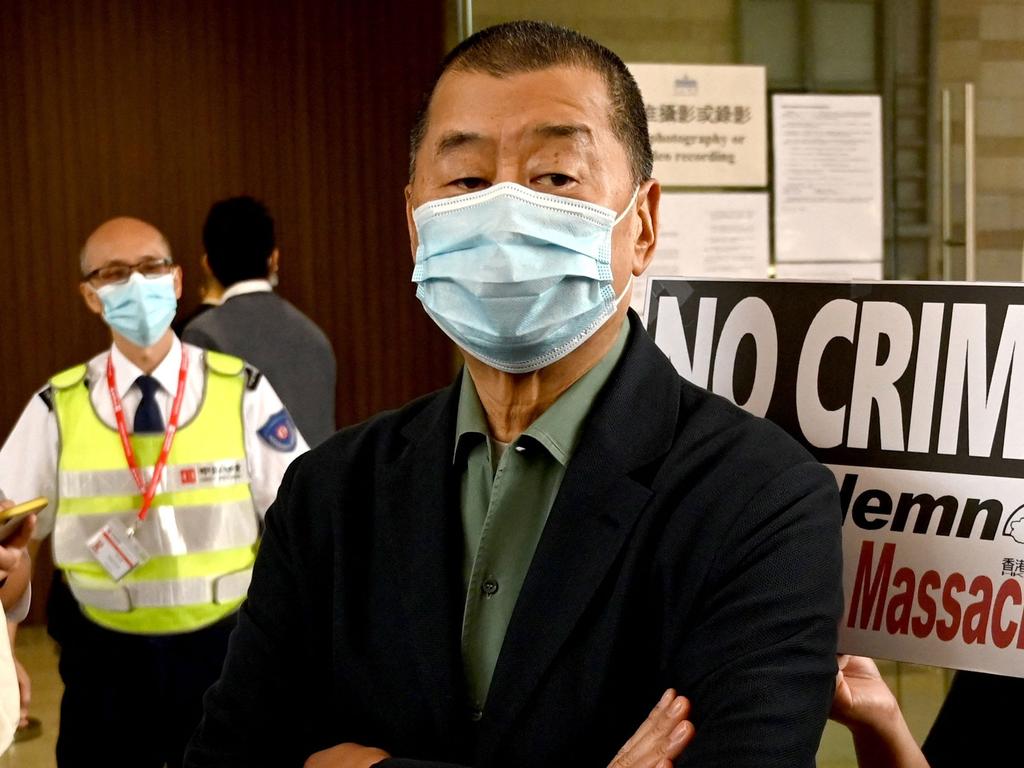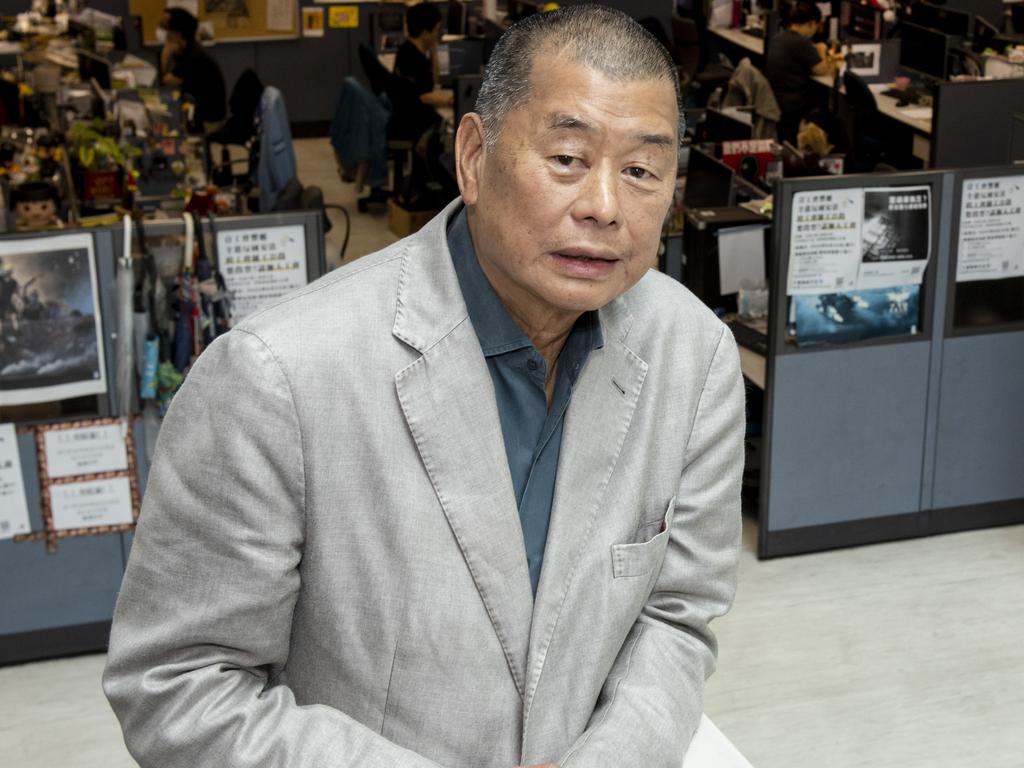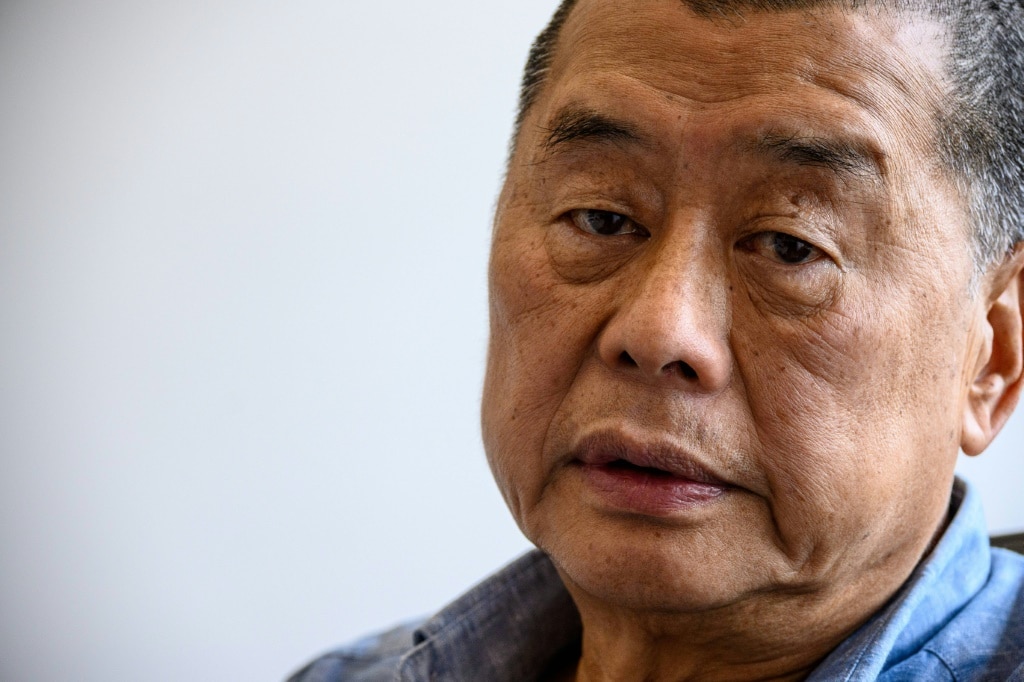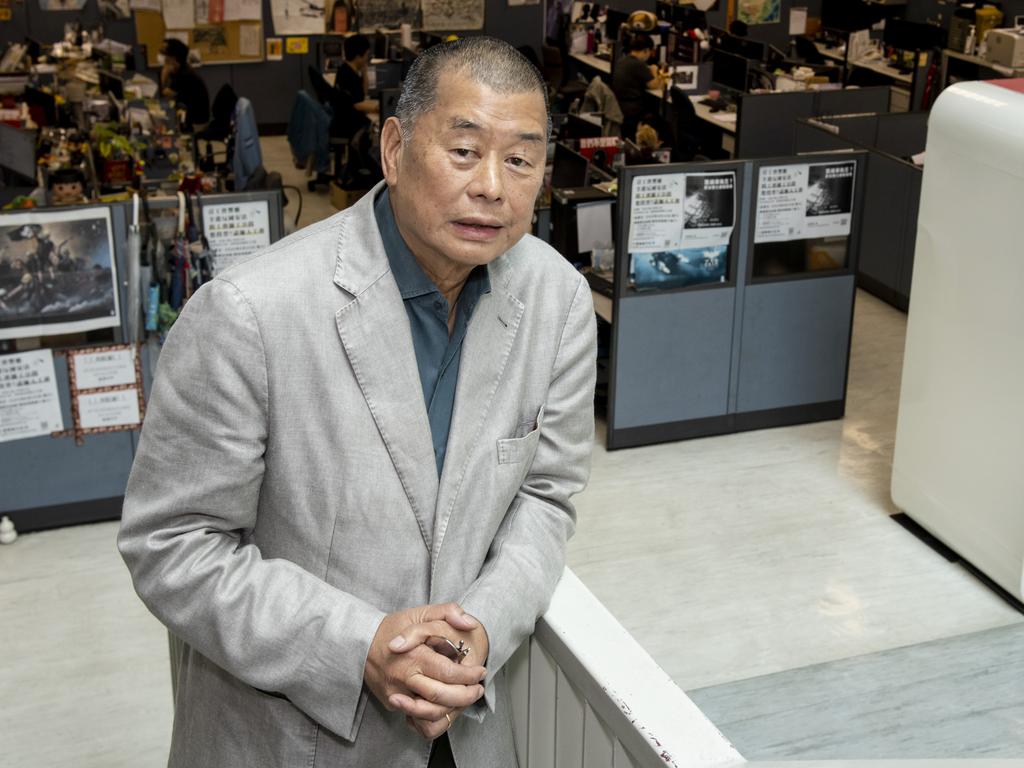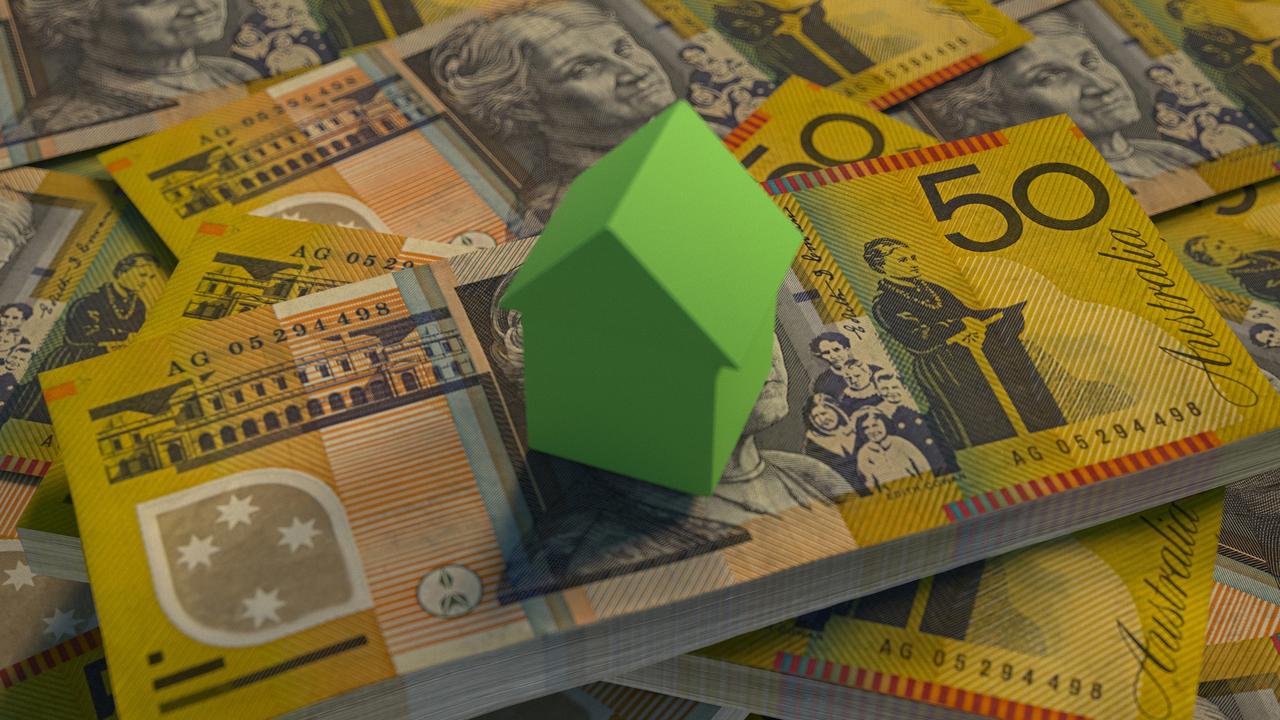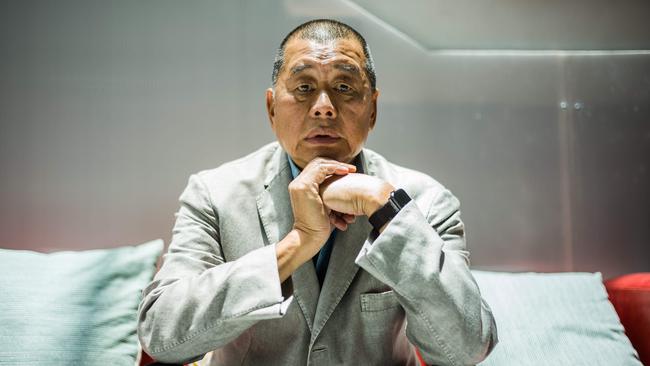
The two most brilliant people I have interviewed in my career, have both been Chinese – Nobel Peace Prize winning philosopher Liu Xiaobo, and business and media genius Jimmy Lai.
By no coincidence they are, or were, also morally clear-eyed and resolute. And self-sacrificial.
Liu died seven years ago of illness, incarcerated in horrific circumstances in a Chinese jail, essentially for suggesting a new, social-democratic-style constitutional arrangement for China.
Lai, now aged 76, has been imprisoned, mostly in solitary confinement, for more than 1000 days in Hong Kong, and this week a show trial has begun that will most likely result in him spending the rest of his days behind bars for his advocacy for the city’s former autonomous spirit.
When he was 12, Lai – his home family life in chaos – smuggled himself into Hong Kong from the mainland, seeking to make his fortune. He succeeded, founding first the global clothing chain Giordano, then Hong Kong’s most popular newspaper, the graphics-laden, sensationalist Apple Daily, followed by a succession of further media ventures.
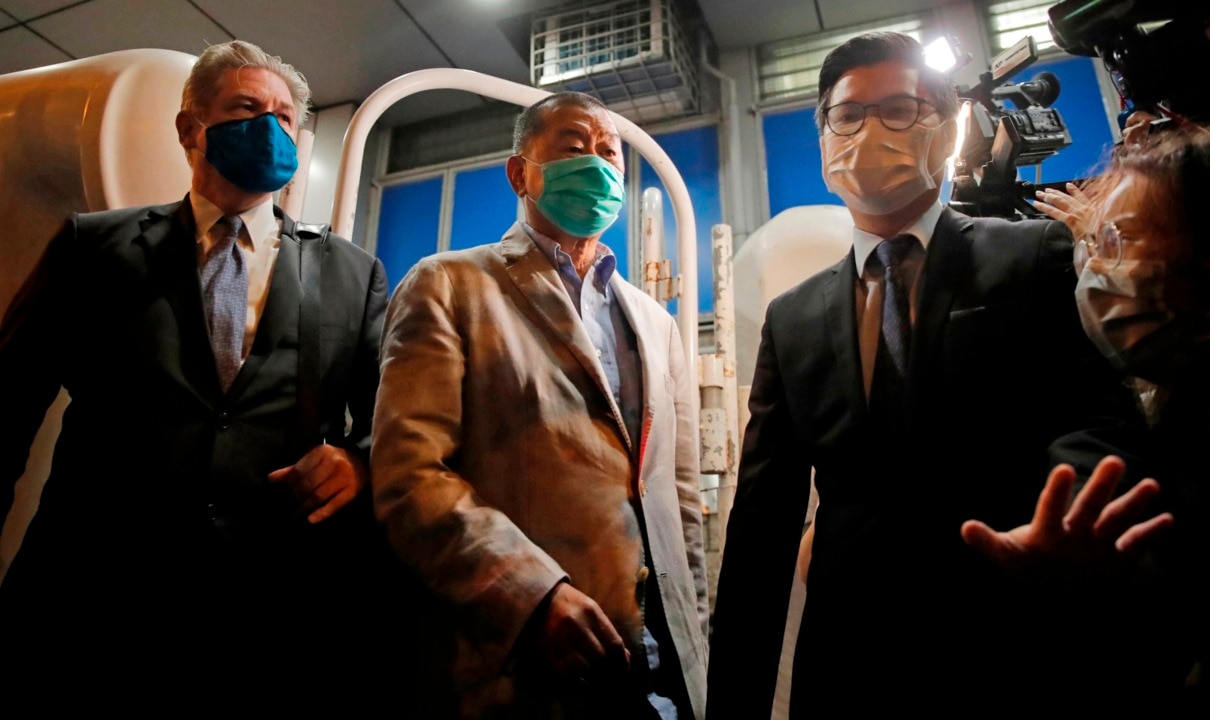
Lai, a Catholic-convert father of six, said when I interviewed him at his office in Taiwan – to which he had extended his media empire – that Hong Kong “is now my home; it’s where my heart is. They leave me alone there.”
Lamentably not, once Beijing decided to end the one-country-two-systems experiment.
Lai told me: “The world is destroyed by people who have ideals more than by pragmatists. The dreamers are mostly devils in disguise. People who want to be saviours want to play God. And we all get into trouble then because God is jealous.”
China’s paramount leader Xi Jinping is engrossed in ideology, his Thought on Socialism with Chinese Characteristics for a New Era is studied compulsorily by almost every category of people in China, from kindergarten onwards.
Lai wrote shortly before his arrest that “regardless of their history and culture, human beings yearn to be free, to improve their lot by pursuing knowledge and exercising the liberty to create, to achieve, to contribute. My fellow Chinese share that yearning. They don’t want a new communist god who revels in their suffering.”
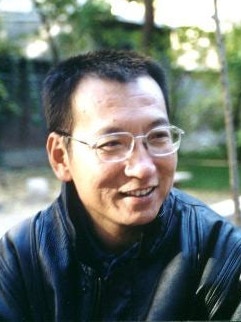
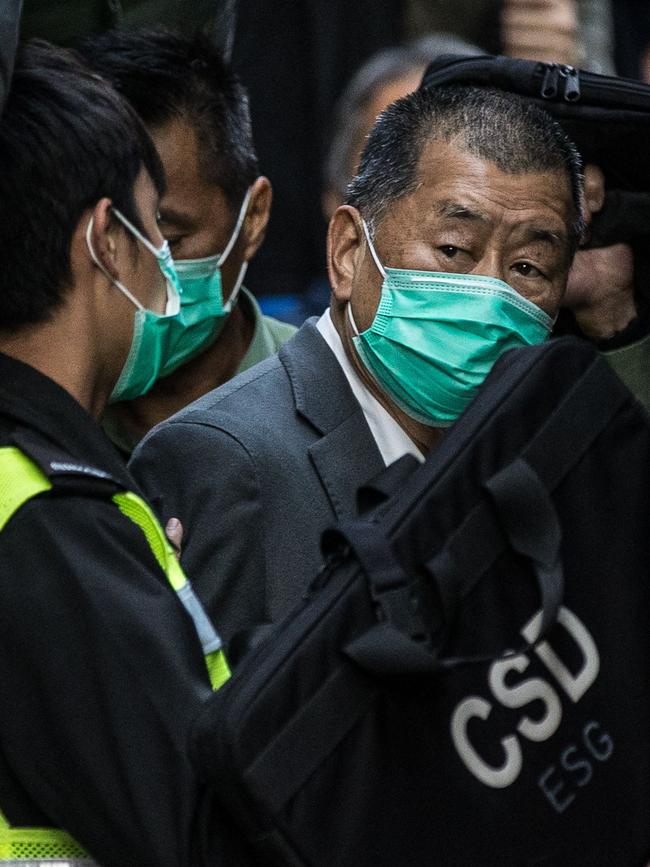
Xi used douzheng, the word for struggle, approvingly 50 times in a single speech at the Central Party School, and advised the country’s more than 20 per cent young jobless people to chi ku, eat bitterness, for their own good.
Chained and handcuffed as he is led to court appearances, Lai has already served out one term for “unlawful assembly” – including lighting a candle at a vigil in Hong Kong for those killed around Tiananmen Square in June 1989.
The most serious charges he now faces come under the national security law that China introduced for Hong Kong on June 30, 2020, targeting those activities it brands as subversion, secession, terrorism and collusion with foreign forces – in Lai’s case through meeting, very publicly, US vice-president Mike Pence and secretary of state Mike Pompeo in 2019.
Cardinal Joseph Zen, aged 91, who also was charged with a national security law offence, bravely supported Lai by attending the opening of his trial this week.
The underlying theme that runs through every elevated court proceeding in China, now including Hong Kong, is the insistence of the Chinese Communist Party that it rules alone and unquestioned. To refuse to concede its primacy in every sphere of life is the core, most serious, crime in the People’s Republic.
The coded word patriot is used in Hong Kongto describe those who are dependably loyal to the CCP in its effective ownership of China. Thus at local elections earlier this month, only patriots were permitted to stand. The CCP does not expose itself directly in Hong Kong but fosters parties loyal to its hegemony.
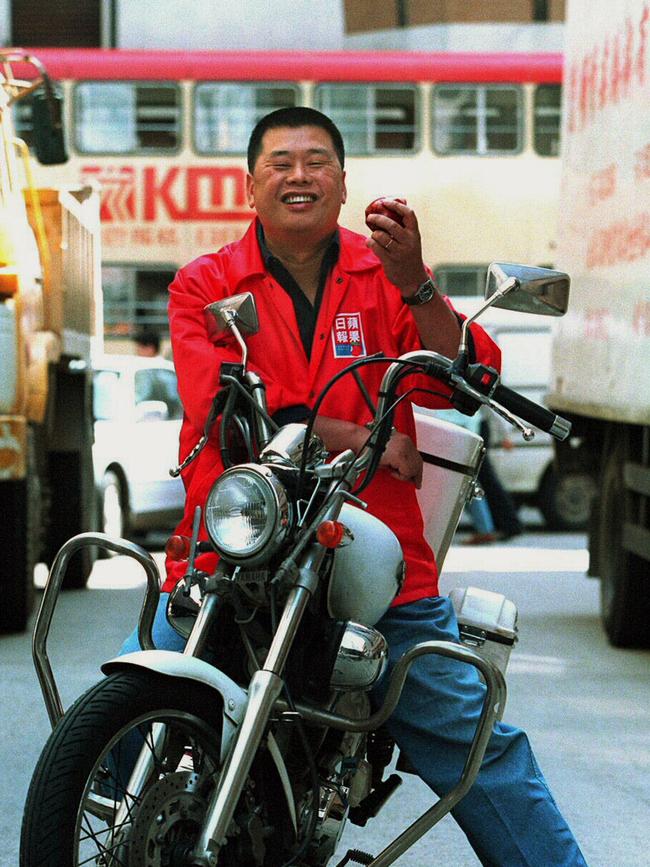
Just 27.5 per cent of eligible electors bothered to vote this month, compared with 71 per cent at the previous such election four years earlier, when they chose pro-democracy candidates to dominate each of the 18 districts.
Lai’s media businesses have been forced to close – part of the great silence that has descended on the once tumultuous and creative city, its formerly lively media, non-government organisations, trade unions, book publishing and academic worlds now effectively gagged, with many fleeing to safer and more open worlds in Asia and elsewhere.
John Lee, the former police officer picked by Beijing to become Hong Kong’s chief executive, operates a little like a sheriff appointed by a cattle baron in a wild west movie.
Thus the $HK1m bounties Lee has placed, “Wanted” poster-style, on Australian lawyer Kevin Yam, who lives in Melbourne, and former Hong Kong legislator Ted Hui, who now lives in Adelaide, to entice people to snare them illegally.
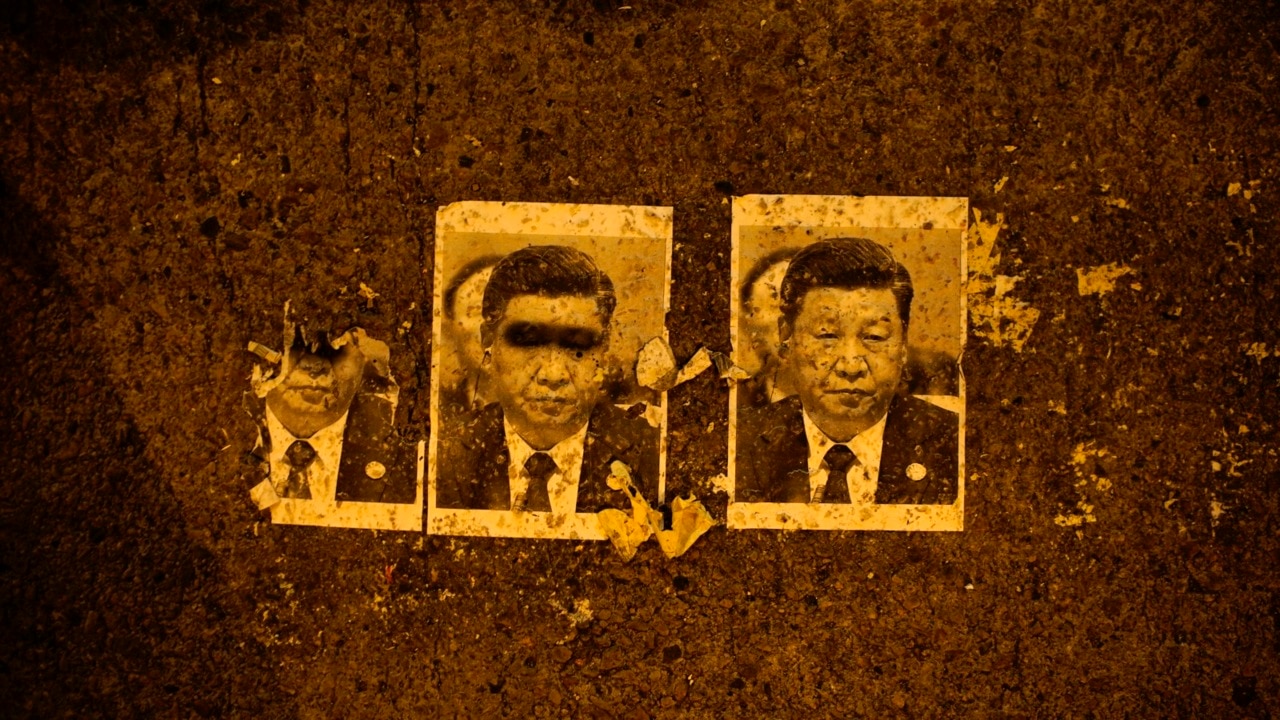
For Xi, Hong Kong’s autonomy, spirit and cosmopolitanism were all negatives, points of vulnerability for an authoritarian single-party state. The city is now being successfully sealed off.
In the longer term, one wonders about the future of a regime that discards its best and brightest, including the great corporate innovator Jack Ma, founder of the now fragmented Alibaba, as well as Liu and Lai.
This Christmas, spare a thought and a prayer for Lai, denied his own choice of lawyer, facing judges – not a jury – selected by Lee, and tried under the national security law that has convicted everyone against whom it has been used.
Rowan Callick is an Industry Fellow at Griffith University’s Asia Institute.


